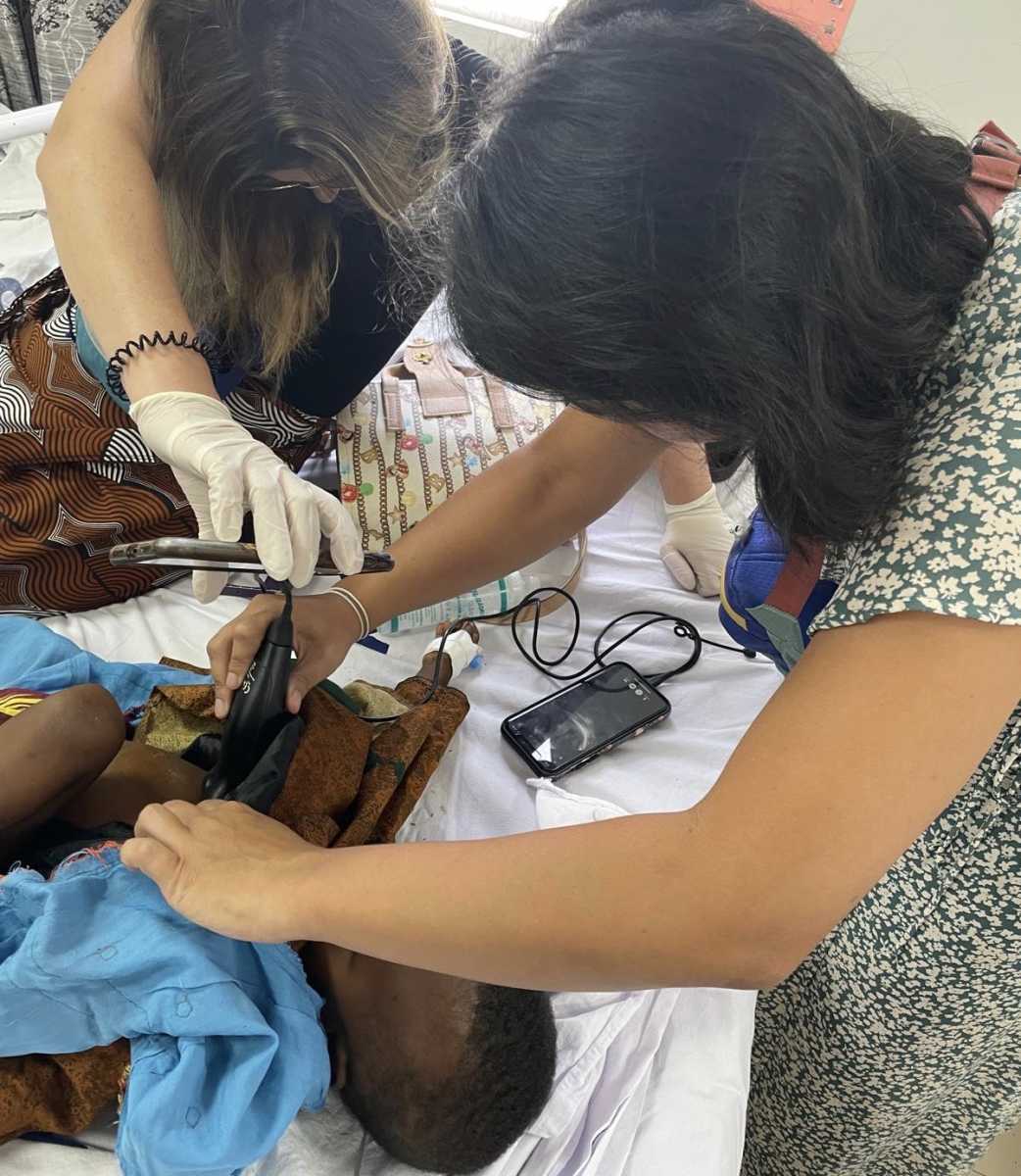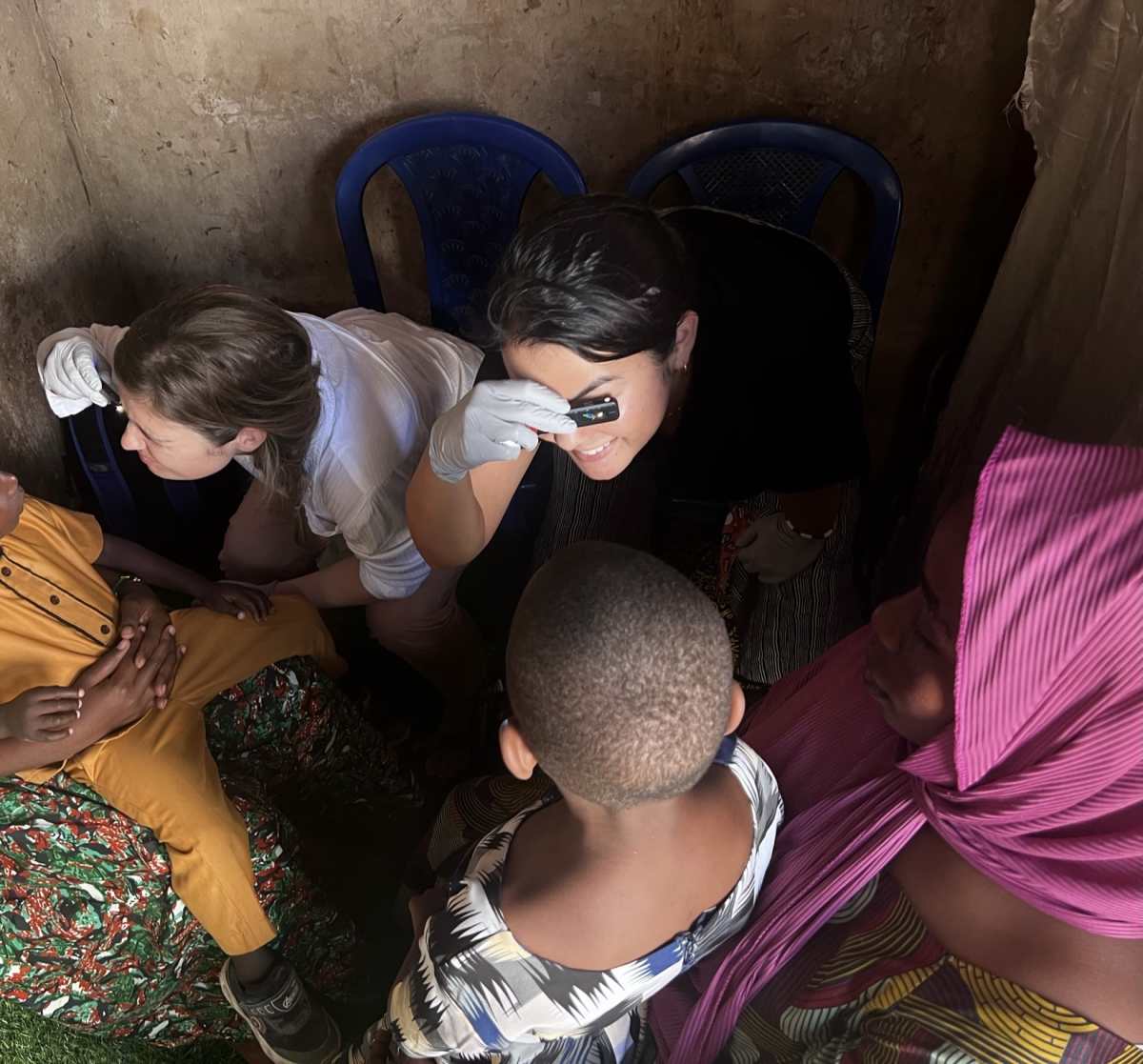Through the Duke Global Health Institute, I will be spending 8 weeks working clinically at Bugando Medical Center, a 900-bed tertiary, referral and teaching hospital on Lake Victoria that serves the lake and western regions of Tanzania. My time there will include both clinical and teaching responsibilities. Visiting residents work on the inpatient wards; the inpatient pediatric services at Bugando include general pediatrics, ICU, NICU, and a malnutrition ward. I will work alongside local attendings and residents to care for critically ill children; two resident teams are responsible for 10-30 patients during the day and around 100 overnight. Inpatients are very ill and the mortality rate is high, typically 3-5 per day.
Duke’s partnership with Bugando is particularly strong in the areas of pediatric hematology and oncology, which is of particular interest to me as I pursue a fellowship in pediatric hematology/oncology. In addition to the work on the inpatient hematology/oncology wards, visiting residents also work for one day per week in the pediatric outpatient clinics at Bugando, with particular time spent in sickle cell disease or oncology clinics. I will also have the opportunity to visit district hospitals in Sengerema or Shirati as a part of a pediatric subspecialty team that provides guidance for challenging oncology cases.
Disparities in global pediatric cancer diagnosis and treatment are stark. Plentiful research has shown that low- and middle-income countries have the highest burden of childhood cancer, as well as the lowest survival rates. In resource poor countries, survival rates range from 5-25%, compared to 80% in countries with high resources.
Bugando Medical Center remains one of the only tertiary care cancer centers in Tanzania, and most Tanzanians live hours away from a treatment center. One recent study showed that 75% of childhood cancer diagnoses made in Northern Tanzania are Stage III or above. A study of a cancer registry at Bugando Medical Center showed that nearly half of cancer diagnoses reported to a local cancer registry received no treatment due to a variety of socioeconomic barriers including transportation, travel distance, parental education, household income and delayed diagnosis.
Numerous care models are being considered and implemented towards the goal of more rapid and accessible care with improved outcomes, including pediatric care hostels and screening programs. I’m hopeful that my time in Tanzania will benefit the children in the Tanzanian Lake area with cancer who I work with in direct clinical service, but also the children in North Tanzania who will benefit from our research pursuits towards early identification and more effective care implementation.
Collaboration with local hosts and associates will be an essential part of the experience of my time at Mwanza. During the rotation, visiting residents stay in the home of a hospital/lab administrator and Duke faculty member. While there are some visiting international physicians, the majority of my day will be working with Tanzanian patients alongside local physicians.
In addition to the clinical responsibilities, teaching will be a fundamental aspect of the time I spend in Tanzania. Visiting physicians run numerous organized and impromptu morning reports and afternoon teaching sessions with local and other visiting clinicians.
I am also eager to join an evolving research presence at Bugando Medical Center. My mentor, Dr. Kristin Schroeder, faculty at Duke, splits her time between Bugando Medical Center and Duke Children’s Hospital, and her research aims to better understand childhood cancer burden, explore barriers to improved outcomes and execute new care modalities. I’m eager to contribute to this work both during my time in Tanzania and once I return to the United States.
Duke has a longstanding partnership with Bugando Medical Center and my time there will continue in a tradition of shared expertise, collaborative patient care and cross-cultural exchange. I'm hopeful that I will be able to utilize my clinical expertise to directly benefit the patients I come into contact with, and that a combination of teaching and research implementation will benefit those who are treated at Bugando for childhood cancer in the future.






I am so thankful for Doximity for helping to make this trip happen. Working with the local providers, we were able to share knowledge and experience to help Tanzanian children and their families with cancer. I helped to staff the inpatient ward, do lumbar punctures, and write chemotherapy. We taught local providers in remote areas how to screen for red reflex (a screening test often done to identify retinoblastoma, a type of cancer). We worked to implement and build upon existing chemo protocols. I am so grateful for the providers I worked with and the knowledge and kindness they shared. It was a team effort, working together to improve the care of patients with cancer in the lake region.